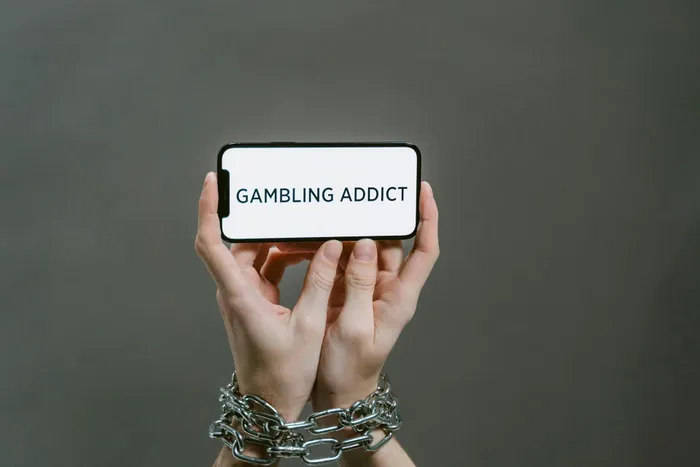South Africa's sports betting boom poses serious mental health risks
FALSE ALLURE

Sports betting, easily available on mobile devices, poses not only risks to financial wellbeing, but also to mental health, psychiatrists say.
Image: Pexels
As sports enthusiasts across South Africa embrace the thrill of betting, troubling statistics reveal an alarming rise in gambling-related mental health issues. The National Gambling Board (NGB) recently reported a staggering 623% increase in calls to the National Responsible Gambling Programme (NRGP) helpline, leaping from 140,000 to over a million in just a year. The data underscores the urgent need for responsible gambling practices as the benefits of sports betting are overshadowed by potential harms.
The NGB's 2024/25 annual report highlights the soaring rate of problem gambling, which has ballooned to 31%, a significant increase from less than 6% in 2017. Among younger South Africans from 18 to 35, referrals for treatment surged from 787 to a staggering 2,034 within the past year, highlighting the increasing vulnerability of this demographic.
A recent study delving into helpline callers indicated that over 40% felt unable to curtail their gambling without professional intervention. Additionally, 32% cited financial troubles stemming from their gambling habits, while 13% reported encountering legal issues. Alarmingly, 14% of callers were also seeking assistance for other mental health conditions, with 11% struggling with alcohol abuse and 6% turning to illicit drugs.
Dr James Burger, a psychiatrist and member of the South African Society of Psychiatrists (SASOP), highlights the creeping normalisation of gambling, particularly among younger individuals. “Two-thirds of South Africans partake in some form of gambling, but for approximately 4% — around 2 million people — gambling has reached problematic levels, affecting their lives in profound ways,” he cautioned.
Sports betting — a dynamic and significant segment of South Africa's gambling landscape — has surged by 76% year-on-year in 2023/24. South Africans wagered R761 billion on various sporting events, with online platforms constituting 66.6% of local gambling spending. This growth trajectory is driven not only by the thrill of competition, but also by the overwhelming visibility of betting through sports sponsorships and media advertising.
“Witnessing the excitement of live sports events coupled with gambling breeds a false sense of control, particularly among young fans and athletes who may believe they are more knowledgeable than average,” Dr Burger cautioned. The access provided by real-time online betting enhances its allure, making it easier for individuals to fall into unhealthy gambling behaviours.
The adverse effects of problem gambling extend well beyond financial ruin. Reports of increased domestic violence, strained relationships, and mental health challenges paint a wretched picture for those engulfed by gambling addiction. Dr Burger notes, “People may engage in risky behaviours, accumulating unsustainable debts in a desperate quest to recover losses, a cycle that can lead to feelings of entrapment and an increased risk of suicide.”
Gambling disorder is officially recognised as a mental health condition, characterised by compulsive behaviours that create chaos both personally and socially. Yet, even those who do not meet the specific criteria for a diagnosis may face significant risks associated with gambling, such as psychological distress and poorer quality of life.
Experts urge individuals to take proactive measures, including setting spending limits and seeking help if gambling becomes uncontrollable. SASOP has endorsed the NGB’s recent initiatives to tighten regulations on gambling advertisements targeting vulnerable groups, especially youths.

Help is available if you or someone you know has a gambling problem. Reach out.
Image: Pexels
The appetite for gambling is aided by the perception of excitement and potential financial gain, but Dr Burger emphasises the importance of seeking help. If signs of harmful gambling arise — such as secrecy, emotional distress, or neglect of responsibilities — it is crucial to reach out for support.
For individuals grappling with gambling issues, resources are available. The NRGP offers a confidential toll-free helpline at 0800 006 008, providing assistance 24/7, as well as counselling services free of charge.
As South Africa continues to revel in its sports betting culture, it is imperative to raise awareness about the associated risks to mental health. Understanding the signs and seeking help can make a world of difference for individuals and families facing the shadows of gambling addiction.
Reach out for help if you or someone you know may have a gambling problem.